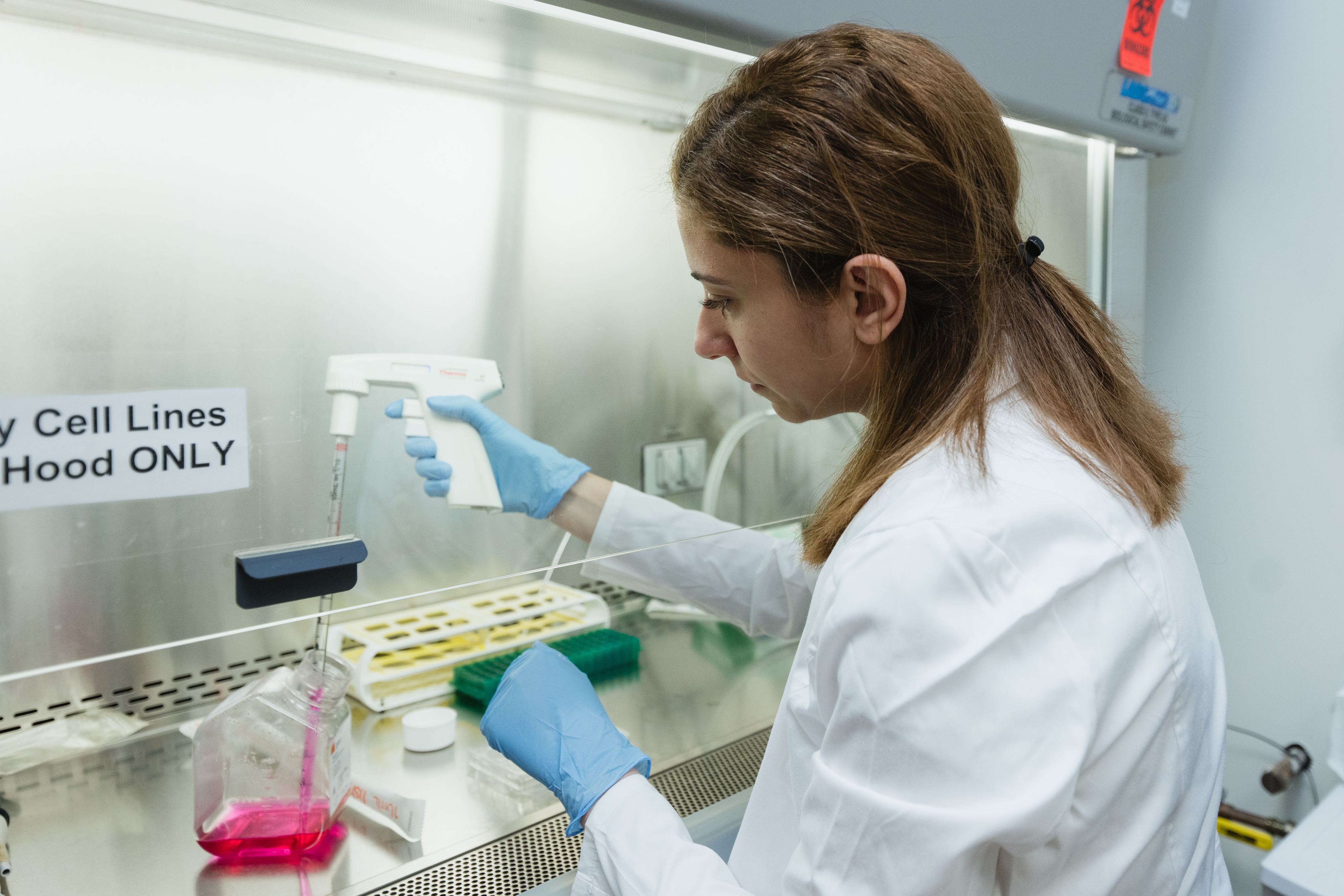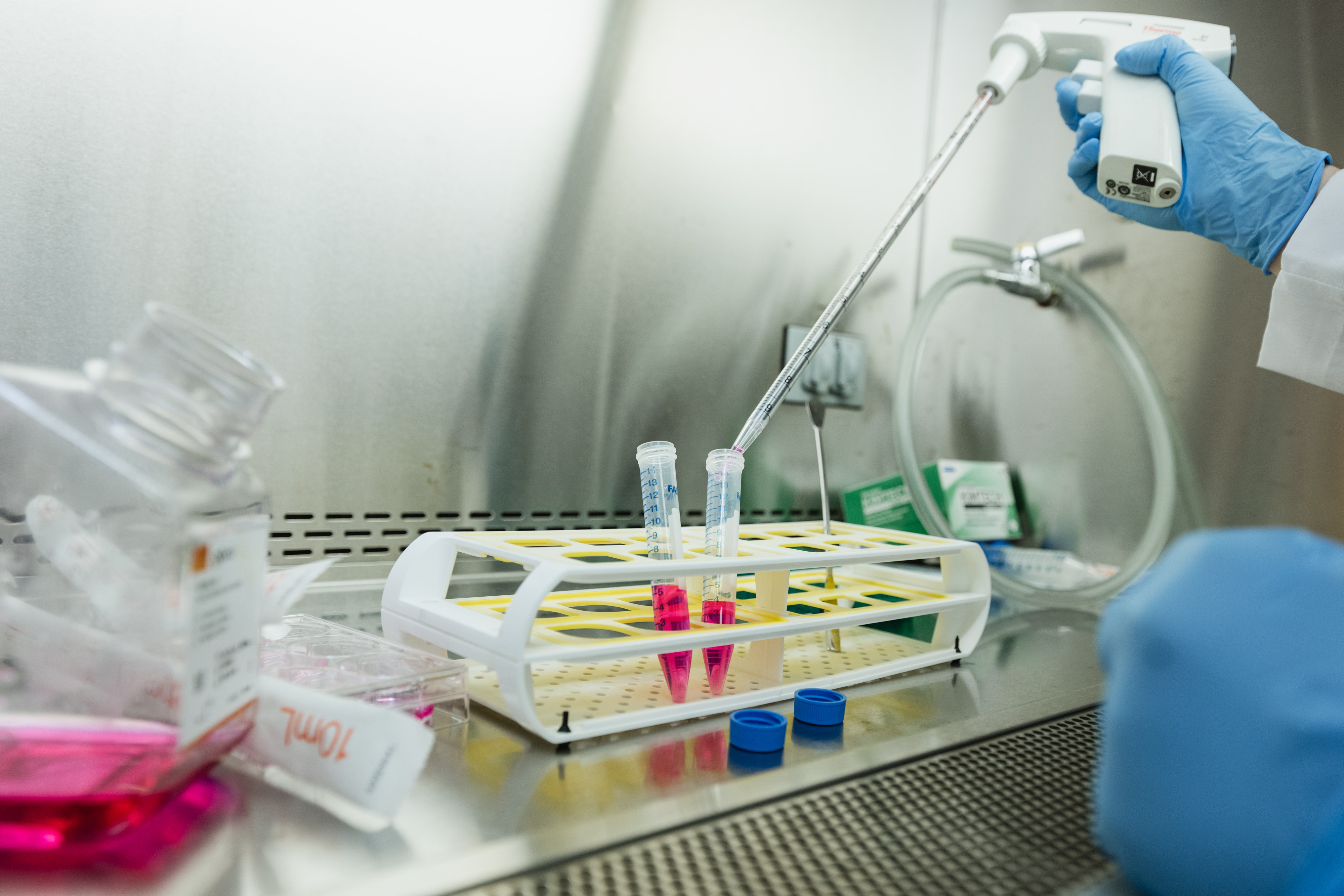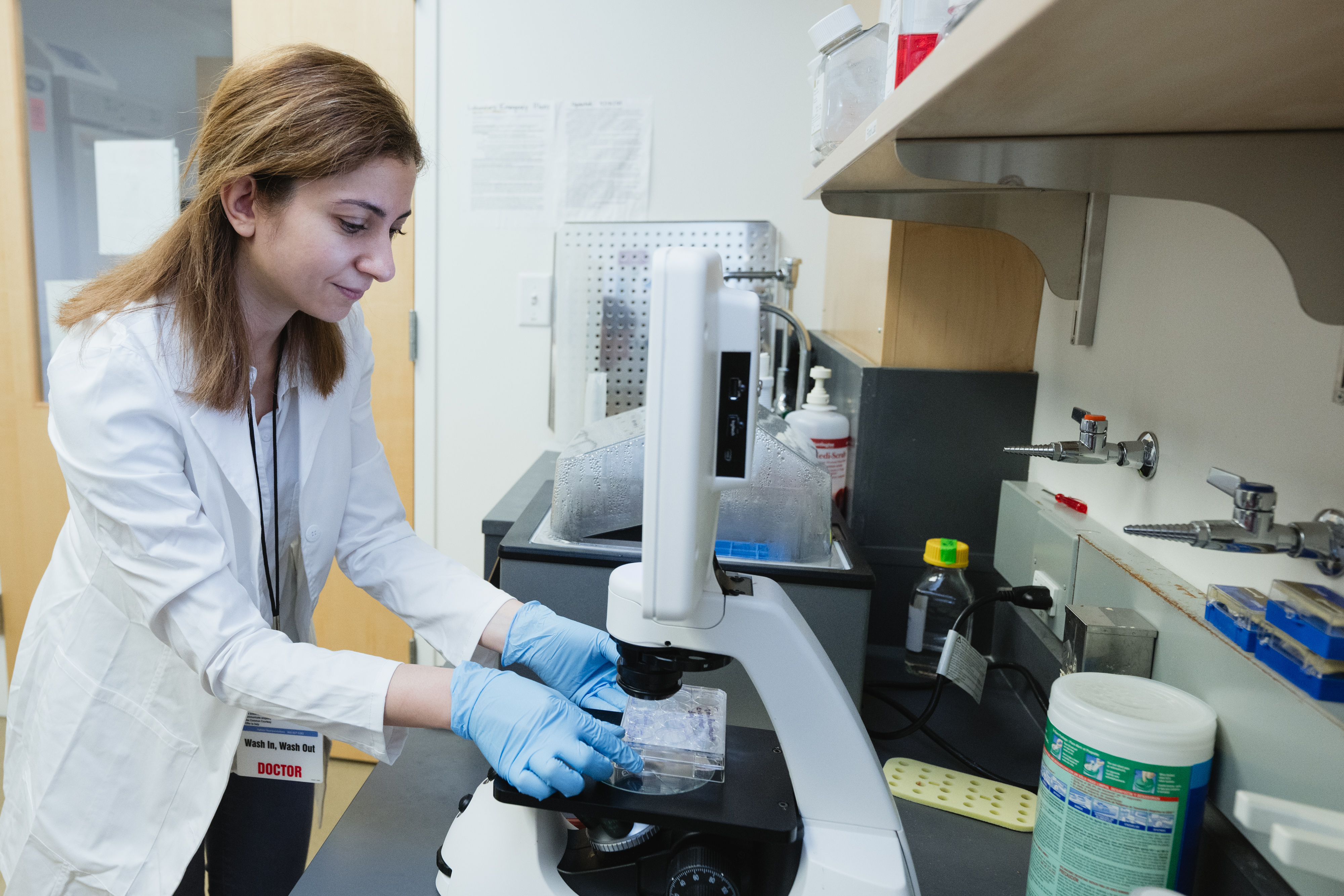Of the 3.59 million babies born in the United States last year, 10 percent were born prematurely. Thanks to advances in neonatology, many infants born as early as 22- and 23-weeks’ gestation are now surviving. Anyone who’s ever been to Connecticut Children’s Neonatal Intensive Care Unit (NICU) knows that miracles happen there all the time.
But miracles can come at a cost.
When babies are born extremely premature (less than 28 weeks gestation), their still-developing lungs need breathing support. While this ventilator helps them survive, it can cause additional injury to their fragile lungs. Other factors that trigger inflammation can also contribute to the injury. As a result, about 30 percent of extreme premature babies develop chronic lung disease, called bronchopulmonary dysplasia (BPD). “If they are born before 24 weeks, the percentage can be up to 80 percent,” said Connecticut Children’s neonatologist Hala Saneh, MD. Dr. Saneh, along with Connecticut Children’s Surgeon-in-Chief Christine Finck, MD, is studying a revolutionary new approach that holds the promise to treat—and even prevent—lung injury and chronic lung disease in premature infants.
Latest Articles

$1 Million Gift from Big Y Supports Connecticut Children's New Clinical Tower and Expanded Pediatric Services

A New Era of Care Begins: Connecticut Children’s Celebrates the Opening of the New Clinical Tower



